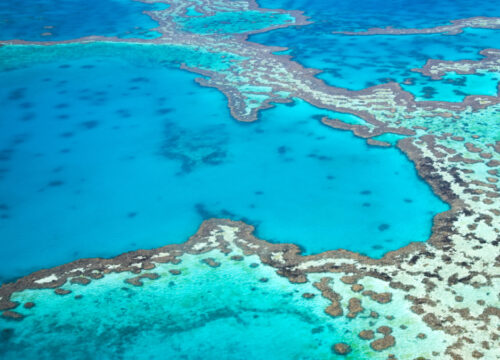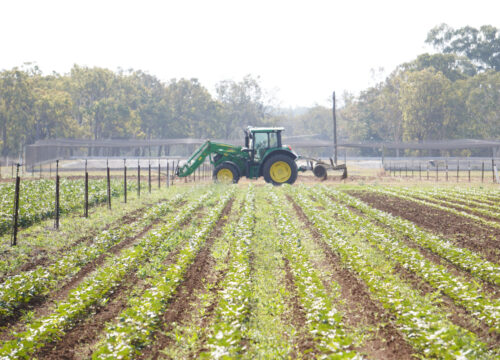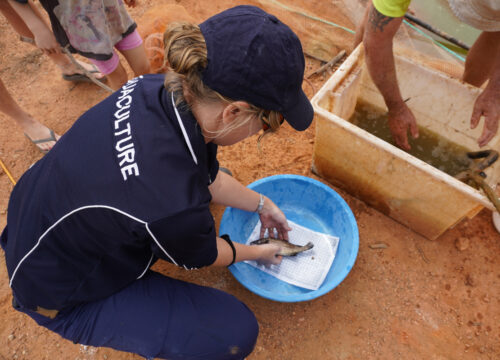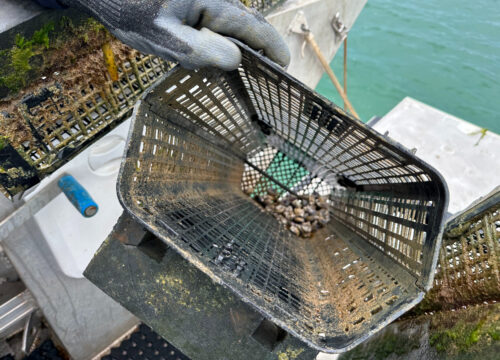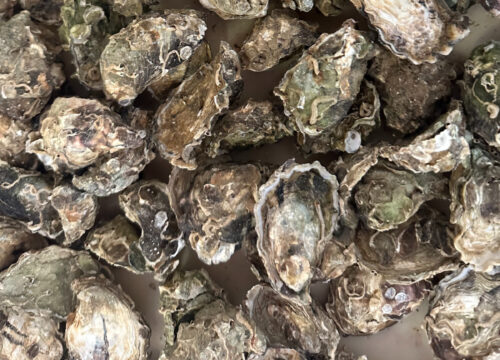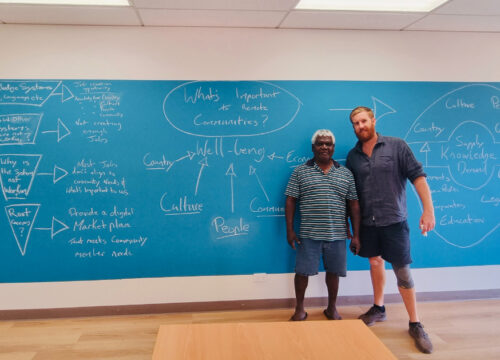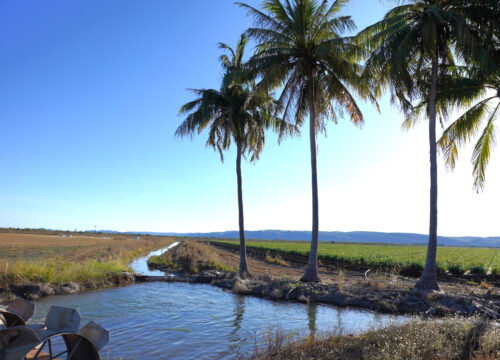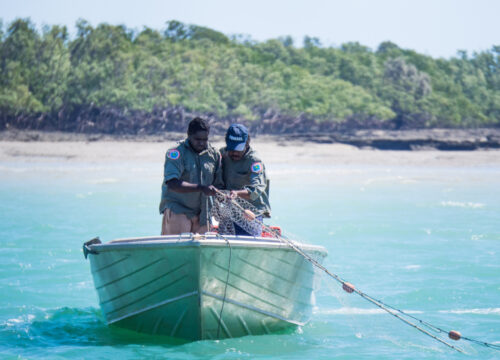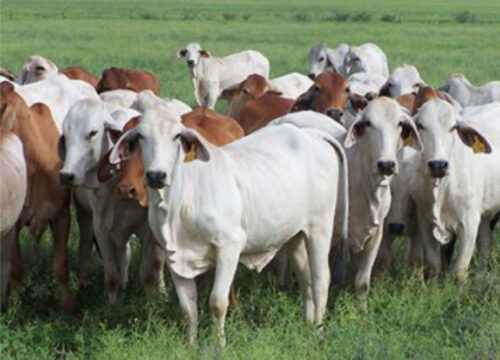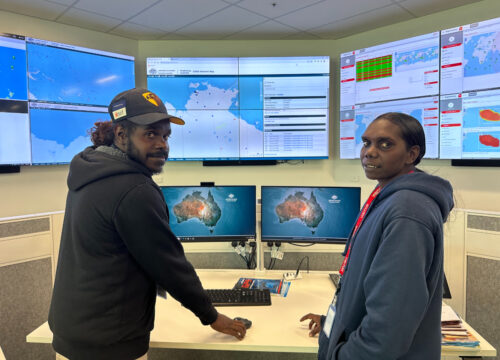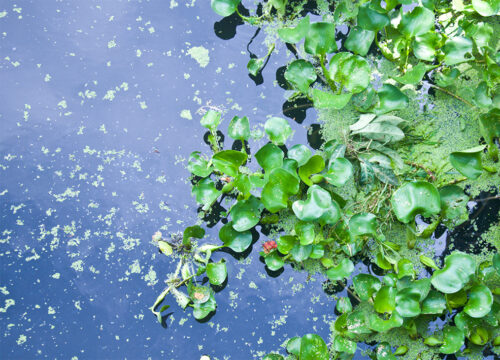- All Projects
- Agriculture
- Aquaculture
- Beef
- Broadacre Cropping
- Bush foods
- Education
- First Nations Led Business Development
- Forestry
- Health Service Delivery
- Horticulture
- Rice
- Strategic policy development
- Sugarcane
- Supply chain development
- Water
- Water Security
Achieving reef water quality requirements in new agricultural developments
The project will assist the expansion of agriculture in the Lower Fitzroy (Central Queensland) by bridging the support gap to meet Reef Water Quality requirements. Businesses undergoing material change use will have access to advice and land management toolkits to navigate the regulatory constraints, monitoring and record keeping practices necessary for production and operation. This mechanism for continuous improvement will assist industry and tailored to specific regional needs.
North Queensland cotton grains cattle farming systems
This project aims to co-design scalable diversification options and drought resilience practices for northern Queensland cotton, grain and cattle enterprises, and quantify the economic, social and environmental values and risks of these options. Whole farm level systems participatory research will examine: current farm resources and business performance co-designed time sensitive responses to drought and market volatility information and tools needed for adoption the impact of extreme climate events on productivity and sustainability the level of climate information accuracy and timeliness required for economic value how climate variability influences the risk of not adopting available solutions whole farm economic models for assessment of on-farm produced grains and/or forage crops when grown in cropping systems for cattle feed, existing environment stewardship frameworks alignment with north Queensland mixed farming systems, agri-business and community regional development vision and what are appropriate stewardship guidelines and self-assessment options for balancing the costs, legislation, social license and value chain demand and opportunities?
Closing the life cycle of Black Jewfish Protonibea diacanthus: a new candidate for aquaculture in Northern Australia
Black Jewfish aquaculture is in early stages of development and three batches of juveniles have been produced at the Darwin Aquaculture Centre in the Northern Territory. The initial primary bottlenecks identified are handling stress, larval survival, and management of cannibalism in early juvenile stages. The research questions this project will address are: What factors will be key in improving rearing procedures for black jewfish? Are black jewfish a suitable species for aquaculture? To address these questions, the project team will undertake a series of trials to determine optimum growing procedures for black jewfish in aquaculture systems. This requires access to high quality, fertilised black jewfish eggs, which is a limiting factor with current broodstock holding systems at the DAC. The addition of new broodstock (adult) housing capacity will increase availability of sexually mature fish and therefore fertilised eggs, enabling two annual spawns, around the black jewfish natural spawning season, to undertake larval rearing, nursery, grow-out and broodstock handling trials, targeted at developing and refining rearing protocols for black jewfish. The key areas of work for this project will include: Larval rearing trials which will focus on optimising nutrition, weaning and water quality procedures to increase survival. Nursery trials will be focused on reducing cannibalism and handling stress. Grow out trials will be performed on farms and will be focused on assessing and guidinghandling and feeding techniques. Broodstock trials will focus on animal handling for gonad assessment. Furthermore, as hatchery produced fish reach harvest size they will be assessed for end-product quality and marketability. This will all contribute to the primary final objective of the project, to assess the feasibility of black jewfish for commercial aquaculture and to produce the first hatchery manual for production.
Blacklip Rock Oyster industry development
This project will continue to build on the foundational work undertaken by researchers at the Darwin Aquaculture Centre, as part of an initial Tropical Rock Oyster research and development project (A.2.1819053NT). During the first phase of the CRCNA-funded project (2019-2023), significant progress has been made in this space, culminating in the development the world’s first hatchery manual for the Blacklip Rock Oyster (BRO). Over this period, hatchery production at the Darwin Aquaculture Centre (DAC) has increased exponentially (from 10,000s to 100,000s spat per spawning run). This increase in production is a direct result of improved hatchery techniques, which have been enhanced through broodstock conditioning, settlement and nursery trials conducted during the first project phase. However, as production has scaled up, new challenges have emerged in the nursery, resulting in inconsistent spat yields. Further research is required to continue to optimise production and reduce variability in spat production between spawning runs, which is critical to ensure farms can consistently access commercial quantities of advanced spat, and thereby build industry confidence and encourage private investment. The project will continue refinements to year-round supply of hatchery-reared spat (juvenile oyster) as this is fundamental to commercialisation, building confidence and encouraging investment. Extension and mentoring will be provided to support oyster farmers and Indigenous communities and farming trials across the Northern Territory.
Western Australia Tropical Rock Oyster research and development
This project establishes a collaborative cross jurisdictional approach to address the most significant technical and regulatory issues that confront the fledgling Tropical Rock Oyster (TRO) industry. The project aims to examine and resolve several key issues to support the development of the TRO industry by undertaking sub-projects addressing the different research needs identified: Securing commercial spat supply – will utilise existing hatchery infrastructure and expertise at the DPIRD Hillarys facility to refine culture techniques for the Blacklip Rock Oyster (BLRO) and other TRO species to be identified in WA. Researchers will employ standard hatchery protocols used in the production of SROs on the TRO species identified in the Pilbara and Kimberley and compare performances before moving the experiment to ocean-based nurseries. Optimisation of grow-out methods and gear technology – Grow-out trials will take place in the Kimberley (Cone Bay) and in the Pilbara (three sites selected in the Dampier Archipelago) at sites providing intertidal and subtidal conditions for the farming of new TRO species (and BLRO in the Kimberley). These trials will include work to: identify TRO species with good aquaculture potential and what system (intertidal or subtidal) they should be cultured with. compare the performance of a maximum of three TRO species (likely to be two species) during grow out in order to select the best performing species. industry road testing the different grow out scenarios for new TRO species. The project team worked cross-jurisdictionally with researchers from the Darwin Aquaculture Centre working on project A.2.1819053NT. Outcomes This project has developed identification tools and agreed common names for key commercial tropical oyster species to prevent potential market confusion and ensure accurate licencing and management of the emerging industry. The Darwin Aquaculture Centre has developed a hatchery manual for the Blacklip Rock Oyster (Saccostrea echinata). In April 2023, more than 700,000 mature oysters grown as part of this research project were transferred to commercial partner Maxima. Maxima will continue refining grow-out techniques with the aim to scale up to commercial harvest within the next decade.
Cultural market system development
This project is seeking to test a new way of thinking about market systems design across Northern Australia, to better align the needs of suppliers and consumers and deliver improved cultural, economic and social outcomes with First Nations peoples and communities. By applying ‘gig economy’ thinking based on existing cultural knowledge, project lead Indigenous Connection believe thousands of First Nations people could overcome barriers to economic participation through employment and business opportunities which embrace cultural knowledge, skills and abilities and connect cultural knowledge supply with cultural knowledge demand.
Water Security for Northern Australia – Implementation Phase
This Water Security for Northern Australia program has been delivered through a partnership between the CRCNA and the Northern Australia Universities Alliance. It is intended this program will develop and implement a series of research projects which address problematic issues which are constraining sustainable water resource utilisation in four key precincts or focal nodes across Northern Australia. These focal nodes are (Gilbert (QLD), Daly-Katherine (NT), Ord (WA) and lower Fitzroy (QLD)). These focal nodes were selected by the CRCNA based on prior assessments and consultation indicating they are likely locations of further water resource development pressure. In order to develop such a series of research projects, it was first required that the relevant stakeholders in each focal node be engaged in a co-design process. The co-design phase of the Water Security for Northern Australia program has identified a series of 15 priorities to be further examined as part of this implementation phase of the Water Security for Northern Australia program.
Unlocking the wealth of Indigenous knowledge and land ownership – seafood industry development
This research aims to identify the specific needs and barriers faced by Traditional Owners’ (TOs) to effectively participate in resource management and harvest on their sea country and develop tailored strategies to address these gaps. This would help ensure TOs have greater ownership and investment in resource management initiatives and can contribute to the sustainable management of marine resources in their sea country. The project will support the development and growth of Indigenous businesses and initiatives, through increasing the skills, capacity, and capability of Indigenous people in the commercial fishing industry, ultimately leading to greater economic self-sufficiency and prosperity for Indigenous communities. It will investigate the potential of an Indigenous fishing cooperative as a way to facilitate greater economic participation within this industry.
Intensification of northern cattle production in WA enabled by feed products from irrigated cropping
The project will address research questions underpinning the intensification of irrigated crop and beef production systems in northern Western Australia (WA), particularly centred around the Ord River Irrigation Area (ORIA). A key focus is to what extent feed products from irrigated cropping can contribute to local cattle finishing systems, ultimately to produce a universally marketable animal and reduce the reliance on live export markets. Specifically, the project will establish a pilot cattle feeding facility using a ‘GrowSafe’ feed efficiency system and utilise a range of tropical feed rations sourced from the irrigated cropping industry (including cotton by-products and corn). Cattle performance will be assessed using growth, carcass composition and meat quality, along with measures of cattle well-being. Economic analysis of these systems and supply chains will also be undertaken. The social licence for intensification of agricultural production is increasingly being scrutinised and is particularly visible in environmentally sensitive regions such as northern WA. The environmental risks of irrigated cropping and intensive feeding systems, with a focus on water quality through efficient irrigation and use of pesticides and herbicides will be reviewed. Concurrent research to measure livestock methane emissions using a ‘GreenFeed’ system will assist with developing an economically viable supply chain with a small environmental footprint.
Digital nutrition model of care to improve Chronic Kidney Disease management in Northern Australia
Australians who identify as Aboriginal and Torres Strait Islander and those living in rural and remote communities continue to be at risk of not benefitting from digital health services, with 9 in 10 rural patients never having experienced digital health care or telehealth in general, and over 40% of clinicians being concerned about their capability to do so. There is genuine value in providing nutrition care in these community health setting, as it can be provided in a familiar environment, via a local health worker and allows for more holistic and culturally appropriate care. However, it is vital that these services are culturally appropriate, evidence-based programs and can communicate nutrition care advice in consultation with Aboriginal and Torres Strait Islander dietitians, Aboriginal Health Workers, and people with Chronic Kidney Disease (CKD) Project leaders, Sophus Nutrition and their research partners will seek to co-design and implement a digital health model of care which is culturally appropriate and delivered by Aboriginal and Torres Strait Islander Health workers/professionals in primary care adjunct to routine care in Northern Australia. Specifically, this project aims to: To optimise existing culturally appropriate and evidence-based programs to deliver and communicate nutrition care advice in consultation with Aboriginal and Torres Strait Islander dietitians, Aboriginal Health Workers, and people with CKD. To determine whether a digital health model of care which is culturally sensitive and delivered by Aboriginal Health workers in primary care adjunct to routine care is feasible, acceptable and effective at improving nutrition care delivery and quality of life in people with CKD.
Integrating Indigenous priorities in spatially enabled planning of the Indigenous Estate.
Modern-day natural resource managers frequently rely upon Geographic Information Systems (GIS) to manage resources and identify opportunities for the economic activation of their assets. However, remote Indigenous community-controlled businesses are at a distinct disadvantage when attempting to access GIS technologies when compared to their non-remote and non-Indigenous counterparts. A key issue for Indigenous land managers is the difficulty in representing Indigenous cultural concerns and priorities in GIS tools which were developed for western land management and planning. Project lead, Anindilyakwa Land Council (ALC) is seeking to implement a GIS program to assist in activating their Indigenous estate for an ambitious economic and social development program. By partnering with ALC on this project Aerometrex, Geoscience Australia and the Australian National University will seek to develop and adapt GIS mapping and technical products to better suit the remote Indigenous context and share the approach with industry and government for wider-scale adoption. The project will be based around a focus area for a community mapping exercises where Traditional Owners can produce spatial data which captures information relating to the living cultural landscape of their Country. This data will be built into story maps which are integrated into a GIS, providing a platform for community voices in Country planning. This data which is generated will then be stored in the ALC’s geospatial database and can be utilised as a layer of ‘baseline’ cultural information for use by land and sea managers.
Making Water Work : Integrating nutrient, waste and energy streams in agriculture development through hyacinth harvest and processing
Water hyacinth is an invasive aquatic weed introduced into the Fitzroy River in Central Queensland as an ornamental plant. However, once hyacinth enters waterways its long-term impact is significant due to the rate of growth, density of biomass and seed life. This project will seek to identify and evaluate methods for the beneficial reuse of water hyacinth in the Fitzroy River, including as a vector for the removal of nutrients from the waterway to improve water quality flowing to the Great Barrier Reef.


